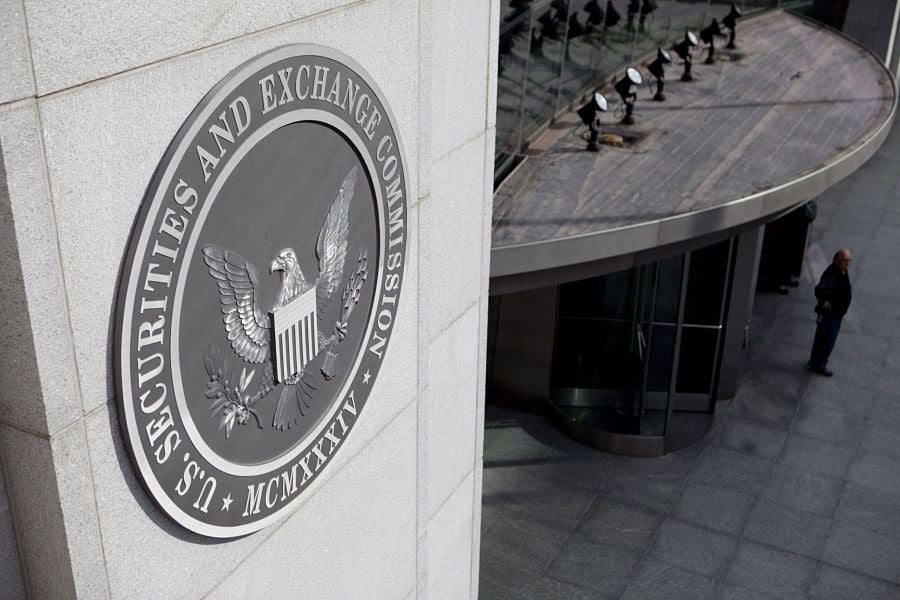

A group of financial industry participants, investor advocates, academics and regulators discussed a draft recommendation Thursday that suggests the SEC amend its existing rules rather than create a new one to target potential conflicts of interest related to financial advisors’ use of artificial intelligence and other digital engagement practices.
The Securities and Exchange Commission released a proposal over the summer that would require investment advisors and brokers who interact with clients and customers through AI and predictive data analytics to “eliminate or neutralize” situations in which technology optimizes the advisors’ or firms’ revenue interests over the interests of the investor for the highest possible return.
The proposal has ignited a firestorm across a wide range of financial industry and advisor interest groups as well as lawmakers. Many critics have called on the SEC to withdraw the proposal, which they say is too broad and would inhibit the development of technology. Proponents say a specific rule is needed to address AI and other tools that can enable advisors and firms to steer investor behavior.
The passion and complexity of the debate were on display during a meeting Thursday of the SEC Investor Advisory Committee, a panel that was created to give the SEC input on investor protection. The committee pushed off to next year a final vote on its draft recommendation about the AI proposal.
In the draft recommendation, the committee warns the proposal would have “unintended consequences” and impose “many rigorous prescriptive requirements on an overly broad swath of technologies.”
The SEC said its proposal would apply to “covered technologies” that could include analytical or computational functions, algorithms, models and other methods to predict, guide or direct investors.
“Efforts by firms to comply with the current formulation of ‘covered technologies’ combined with the current formulation of ‘investor interactions’ could have unintended adverse impacts on investors by overly curtailing access to valuable information, tools, and assistance, and impeding the adoption of new, beneficial technologies,” the IAC recommendation states.
The IAC draft recommendation calls on the SEC to narrow the scope of its proposal to “target the unique risks” of AI and predictive data analytics that “interact directly with investors.” It should be limited to technology that is “opaque and complex.”
The recommendation also says SEC should apply Regulation Best Interest, the broker standard of conduct, and the fiduciary duty that governs investment advisors to AI and predictive data analytics rather than promulgating a new rule specifically targeting the technologies.
The SEC should use Reg BI and fiduciary duty to define both conflicts of interest — and how they should be addressed — and advisor interactions with investors, according to the draft recommendation.
Under both Reg BI and fiduciary duty, a financial advisor cannot put her interests ahead of an investor’s interests. Reg BI says brokers must identify, disclose and eliminate or mitigate conflicts, while the AI proposal says conflicts must be eliminated or neutralized.
The differences between the AI proposal and Reg BI and the SEC’s interpretation of the investment advisors fiduciary standard is a concern, said Paul Roye, a former executive at Capital Research and Management Co. and head of the IAC subcommittee that drafted the recommendation.
“You have an existing framework,” Roye said at the IAC meeting. “You don’t need to reinvent the wheel here. You’ve got the building blocks to address [AI and predictive data analytics] concerns. That standard exists. All you need to do is build on it.”
But the recommendation hews too closely to financial industry criticisms of the AI proposal, said Leslie Van Buskirk, vice chair of the IAC and Wisconsin securities administrator. She said the measure is needed particularly to protect investors in self-directed accounts from potential conflicts involving predictive technology.
“To me, a recommendation that ... focuses on the concerns of investment firms and professionals is not only outside our charge here at the IAC but a letdown for retail investors,” Buskirk said. “For decades now, employees have been more and more responsible for saving for their own retirements, and … even more of the burden will fall on individual investors,” making the SEC’s IA proposal a necessity.
The IAC recommendation has already gone through 11 drafts, committee members said. It will be revised again, and a vote is planned for the panel’s March meeting. The SEC takes advisory committee recommendations under advisement but does not have to act on them.

A Texas-based bank selects Raymond James for a $605 million program, while an OSJ with Osaic lures a storied institution in Ohio from LPL.

The Treasury Secretary's suggestion that Trump Savings Accounts could be used as a "backdoor" drew sharp criticisms from AARP and Democratic lawmakers.

Changes in legislation or additional laws historically have created opportunities for the alternative investment marketplace to expand.

Wealth managers highlight strategies for clients trying to retire before 65 without running out of money.

Shares of the online brokerage jumped as it reported a surge in trading, counting crypto transactions, though analysts remained largely unmoved.
Orion's Tom Wilson on delivering coordinated, high-touch service in a world where returns alone no longer set you apart.
Barely a decade old, registered index-linked annuities have quickly surged in popularity, thanks to their unique blend of protection and growth potential—an appealing option for investors looking to chart a steadier course through today's choppy market waters, says Myles Lambert, Brighthouse Financial.
